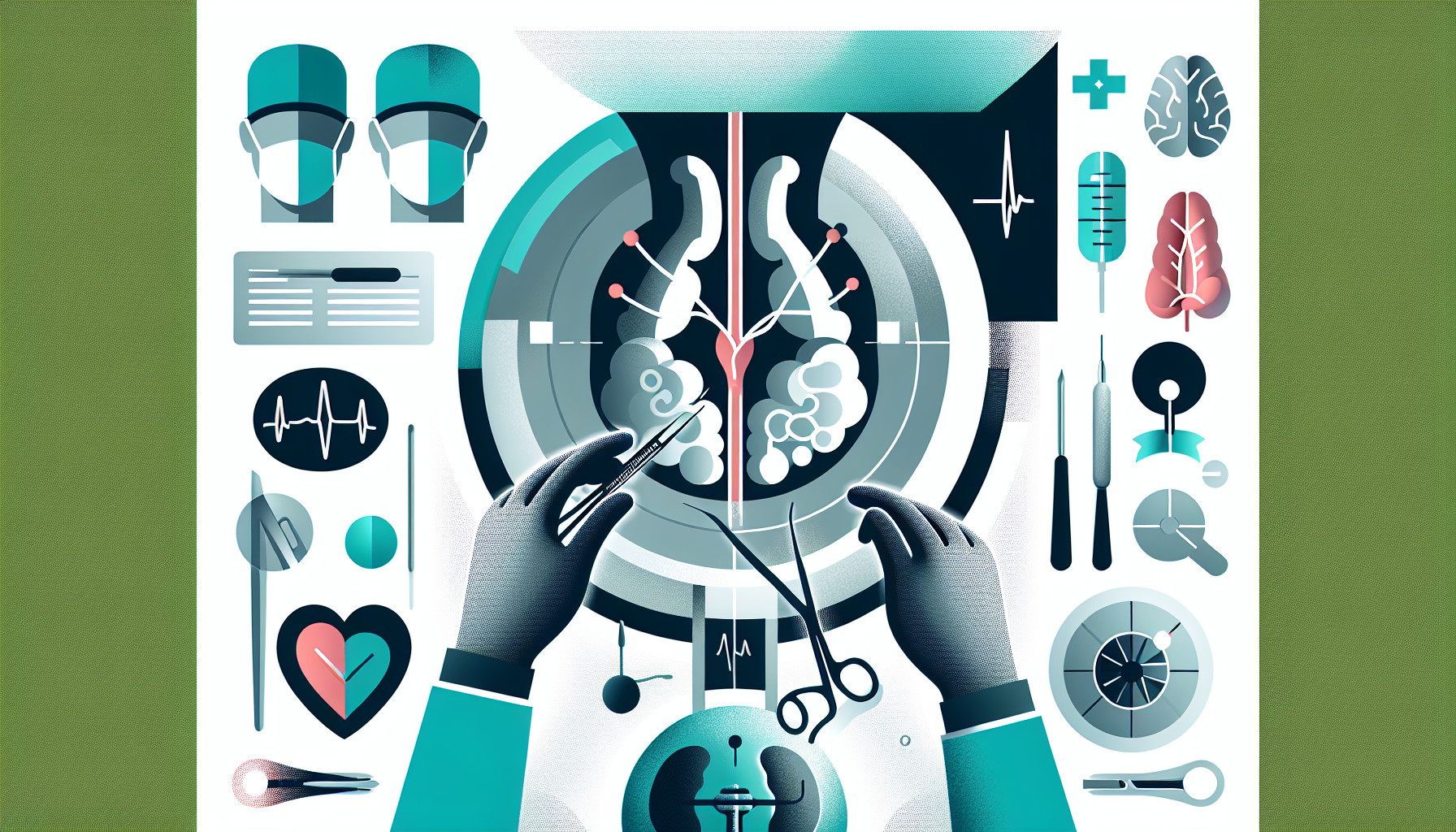Our Summary
This research paper reviews the latest findings on non-opioid pain management strategies for patients who have had inflatable penile prosthesis (IPP) surgery. This surgery can cause post-operative discomfort, so finding effective ways to manage the pain is important. The paper found that certain surgical techniques and multi-faceted pain management (or ‘multimodal analgesia’) methods can help reduce pain and the use of opioids in patients after surgery. These methods, which are being used in other areas of surgery, have shown promising results in IPP surgery. However, more research is needed to see how these strategies can help control pain and reduce opioid use in the long term.
FAQs
- What is the focus of this research paper on penile implant surgery?
- What are some of the non-opioid pain management techniques suggested for post-operative discomfort from inflatable penile prosthesis surgery?
- Is there a need for further research in the field of non-opioid pain management strategies for penile implant surgery?
Doctor’s Tip
One helpful tip a doctor might tell a patient about penile implant surgery is to follow their post-operative pain management plan carefully. This may include taking prescribed medications as directed, using ice packs or heat therapy as recommended, and practicing relaxation techniques to help manage discomfort. It’s important to communicate any concerns or changes in pain levels to your healthcare provider so they can adjust your treatment plan accordingly.
Suitable For
Penile implant surgery is typically recommended for patients who have erectile dysfunction that has not responded to other treatments such as oral medications, injections, or vacuum devices. Candidates for penile implant surgery may include:
Patients with severe erectile dysfunction: Patients who have not had success with other treatments for erectile dysfunction may be recommended for penile implant surgery.
Patients with medical conditions: Patients with medical conditions such as diabetes, high blood pressure, or heart disease that contribute to erectile dysfunction may benefit from penile implant surgery.
Patients with anatomical issues: Patients with anatomical issues such as Peyronie’s disease (a condition that causes curvature of the penis) may be recommended for penile implant surgery.
Patients with psychological issues: Patients who experience psychological issues related to their erectile dysfunction, such as anxiety or depression, may benefit from penile implant surgery.
Patients who desire a permanent solution: Patients who are looking for a long-term solution for their erectile dysfunction may choose penile implant surgery.
Overall, penile implant surgery may be recommended for patients who have not had success with other treatments for erectile dysfunction and are looking for a permanent solution. It is important for patients to discuss their options with a healthcare provider to determine if penile implant surgery is the right choice for them.
Timeline
Before penile implant surgery, patients typically undergo a consultation with a urologist to discuss their options and determine if they are a suitable candidate for the procedure. They may also undergo pre-operative tests and evaluations to ensure they are healthy enough for surgery.
After penile implant surgery, patients will likely experience some discomfort and pain at the surgical site. They may be prescribed pain medication to help manage this discomfort. Patients will also need to follow post-operative care instructions, such as keeping the surgical site clean and avoiding strenuous activities.
In the weeks and months following surgery, patients will gradually resume normal activities and may begin to see improvements in their erectile function. It is important for patients to follow up with their healthcare provider regularly to monitor their progress and address any concerns.
Overall, the goal of penile implant surgery is to improve a patient’s quality of life and sexual function. With proper care and follow-up, patients can expect to see positive outcomes from the procedure.
What to Ask Your Doctor
- What are the potential risks and complications associated with penile implant surgery?
- How long is the recovery period after penile implant surgery?
- What type of pain management options will be available to me after surgery?
- Are there any non-opioid pain management strategies that can be used to reduce pain post-operatively?
- How effective are non-opioid pain management strategies in controlling pain after penile implant surgery?
- Will I be prescribed opioids for pain management after surgery, and if so, for how long?
- What are the potential side effects of using opioids for pain management after penile implant surgery?
- Are there any alternative pain management options that can be used instead of opioids?
- How can I best manage pain and discomfort during the recovery period at home?
- Are there any specific exercises or activities I should avoid during the recovery period to prevent pain and complications?
Reference
Authors: Ellis JL, Pryor JJ, Mendez M, Sarmiento AS, Perito P, Simhan J. Journal: Curr Urol Rep. 2021 Feb 3;22(3):17. doi: 10.1007/s11934-021-01033-1. PMID: 33534030
